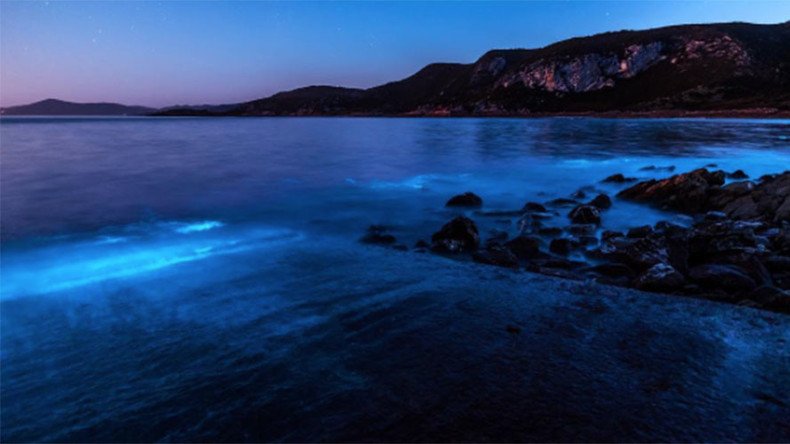Neon blue ‘vacuum cleaner’ algae lights up ocean in stunning display (PHOTOS)

Tasmanians were treated to a visual treat from nature this week, as the Australian island’s waters glowed a magical bright blue. The natural phenomenon has a darker side, however.
The stunning display appeared along Tasmania’s northwest shore thanks to bioluminescent algae. Noctiluca scintillans, also known as sea sparkle, is a single-celled algae or plankton which glows dazzling blue when it’s disturbed.
The algae appears reddish-brown during the day, but gives off a bright blue glow when waves disturb it at night.
People shared photographs of the beautiful water taken at Preservation Bay, Rocky Cape National Park and other Tasmanian areas on social media.
The Bioluminescence is back, just near Penguin on Tassie's north-west coast this weekend #Tasmania pics: Brett Chatwin pic.twitter.com/asK3neh7d6
— Tasmania Today (@today_tasmania) March 12, 2017
Although the bioluminescence looks spectacular, it has a dark side. According to Gustaaf Hallegraeff, Professor in Aquatic Botany at the University of Tasmania, the algae consumes other plankton, which can have a negative effect on oysters and mussels, who feed on plankton.
“This is a plankton that needs to feed on other organisms and it is a voracious feeder; it really can behave like a vacuum cleaner,” Hallegraeff told the Australian. “So it comes in, blooms, and then the water for weeks is crystal clear because it has eaten everything. And so shell fish farmers sometimes complain that there’s no food left for their shell fish to eat.”
Hallegraeff warned should the noctiluca become more widespread, it could pose a threat to the ecosystem.












